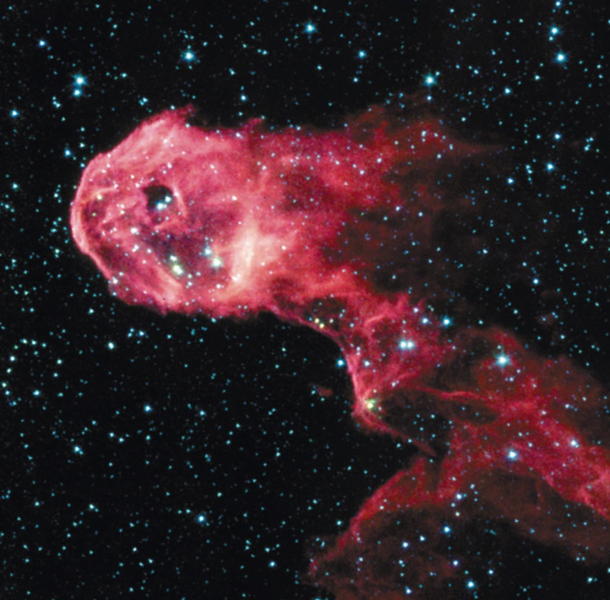“The Secret Melody. Chaos and Harmony. The Infinite in the Palm of the Hand. Desire for Infinity. The titles of Professor Thuan’s books evoke a rich variety of themes”, recalls Yves Oltramare, whose foundation organised the astrophysicist’s lecture in partnership with the University of Geneva in 2016. “They alone awoke led me to dream and spurred my curiosity to penetrate the dizzying mysteries of the cosmos. I found them to be a continuation of the prodigious intuition of Teilhard de Chardin who reset Darwinian theory within the context of an orientated and a predetermined evolution. Indeed, recent discoveries in astrophysics and cosmology are on the point of validating his vision by achieving this marvel of reconstituting mankind’s past back to its furthermost origins. They opened up unsuspected horizons to me, revealing the origin of life and above all our ancestry. You made it plain to me that the universe has a history, that it is governed in an extraordinary way and that the infinitely small generates the infinitely large.
Physics and metaphysics seem to converge towards these two faces of a single reality, to the point that we can dare to speak of the spirituality of the cosmos. In this very same lecture theatre, I attended a lecture by French palaeoanthropologist Pascal Picq on our ancestor, the great ape. But the great apes figure quite recently in the history of evolution. Who were their ancestors ? Bergson, drawing on the theories of Darwin, admits of a genetic schema in which the human body is descended from plankton. Nonetheless, he does not exclude the intervention of what he calls “a sacred breath”. There would have then been a creator, a creation ex nihilo, or spontaneous generation. It was at this stage that the work of Professor Thuan opened my eyes to the missing link that both Bergson and Teilhard de Chardin lacked. Based on the Big Bang theories, each of us, going back in time, to well before the great apes, passed through the stages of evolution without stopping at the plankton. The history of the universe started 14 billion years ago with a sudden and violent expansion of an initial source of energy. Everything that we perceive and know converges towards this fathomless mystery. Who is at the origin of this energy ? Why did time and space start with Big Bang ? What was going on half a second before ? For now and perhaps forever, everything converges on this mystery. Scientifically, our era is experiencing a period which will have a place in history as prodigious as the Renaissance. Astrophysics is in the process of overwhelming our conception of the world. The fact that we are an emanation of the universe fascinates me for the following reasons: first of all, it illustrates our family relationship with the universe as a whole and, consequently, our common genealogy with all living beings, whatever their degree of evolution. As stardust, we are atomically speaking related to the universe. Would this relationship explain the human longing to communicate with this initial source, this creative breath, through the multiplicity of religious rituals ? Humanity is one of the components of this universe where everything is connected. If one of these components becomes detached from it, it condemns itself to disappear. What meaning would the universe have if the consciousness, of which we are apparently the only bearers, disappeared ? This is indeed about the place of humankind in the universe, and this is what we are asking ourselves about”, concluded Yves Oltramare, asking Professor Thuan to give his opinion on this “redoubtable yet fascinating enigma”.
“For 20 centuries, humankind thought it was at the centre of the world”, or indeed was the centre of the world, recalled Professor Thuan. In 1643, Copernicus dislodged humanity from the central place it thought it occupied in that universe and relegated the earth to the status of a mere planet. Since then, astrophysics has never ceased to reduce mankind in scale both in space and in time. So does that mean the universe does not give a fig about our presence within it and that we have no role to play ? That is not what Professor Thuan believes. On the contrary, modern cosmology has “re-enchanted” the world by demonstrating our interdependence with the universe. It has also taught us that the universe was regulated with an extreme precision that allowed the appearance of stars, life and finally consciousness. In numerous civilisations, this precision has been seen as the work of the gods: in Egypt, Princess Nout, the God Shiva in India, Yin and Yang in Eastern Asia. It was only in the fifth century BCE that in Greece a handful extraordinary men asserted that human reason could comprehend the laws of physics that govern the universe, and that people should not surrender blindly to the acts of the gods.
Today, we know that the observable universe contains some 200 to 300 billion galaxies, each of them containing hundreds of billions of suns. These galaxies are not distributed haphazardly across the universe. Gravity assembles and structures them in an immense cosmic web that owes nothing to chance. According to the Big Bang theory, the universe started out from an extremely small point from which space was diluted following this huge explosion. This “bang” would have been completely silent. At the time (!), no matter existed that could have transmitted the sound. The explosion was in fact an expansion, which the scientists tell us continues to this day. Indeed for Professor Thuan, “more and more space is being created between the galaxies as the seconds tick by. Physicists extrapolate this Big Bang theory to as far back as 10-43 seconds from time zero. Currently, the physics rests on two distinct theories which inform two regimes: that of the infinitely small – quantum mechanics and atomic and particle physics –, and that of the infinitely large, described in Einstein’s theory of relativity. Currently, no one knows how to unify these two theories, hence the well-known Planck wall, that time of 10-43 seconds, which means that we do not know the origin of things. So there seems to be an empty space which is not devoid of everything, but filled with energy”. This is Einstein’s renowned formula, E=MC2, which expresses the equivalence of mass and energy. To summarise, “we do not know 95% of the universe and a shrinking in space equally signifies a shrinking in time”. Until recently, when we talked about the universe, we were talking about our universe. Today, researchers think there is a multitude of other universes parallel to our own, known as multiverses. However, the truth of this concept has not yet been demonstrated and, according to Professor Thuan, may not be provable at all, as it is neither observable nor falsifiable – see the writings of Karl Popper, philosopher of science, in this respect. Moreover, it runs counter to experimental scientific method. What philosophical consequences does Professor Thuan believe this has ?
In the 17th century, Blaise Pascal, who of course was not aware of the existence of the galaxies, wrote “the eternal silence of space frightens me”. More recently, Jacques Monod, author of the celebrated Chance and Necessity (1970), concluded very pessimistically that “humankind is lost in the indifferent immensity of the universe from which it has emerged by chance”. So does this mean everything is chance and nothing has meaning ? That the universe does not care about the presence of humankind, which should be considered as a purely random event ? Steven Weinberg, winner of the 1979 Nobel Prize for physics, also put his money on chance: “The more the universe seems comprehensible, the more it also seems pointless”. These views appear rather discouraging and pessimistic to Professor Thuan, who for his part, thinks that modern biology has taught us to re-enchant the world. As Yves Oltramare said in his introduction, “mankind is stardust”. For Professor Thuan, “the universe was regulated in an extremely precise way, which allowed stars to appear, and then life and consciousness”. Quoting William Blake – To see a world in a grain of sand, And heaven in a wild flower, Hold infinity in the palm of your hand, and eternity in an hour – Professor Thuan asserts that the properties of the universe are determined by about fifteen physical constants, which are the benchmarks of nature – e.g. the mass of electrons and protons, electron charge, the gravitational constant etc. There is no theory to explain the value of these constants, but they are nevertheless measured extremely precisely in the laboratory. Professor Thuan reminds us that there are also initial conditions: in particular, it has been discovered that the initial density of the universe is set at 10-60. Change the 60th decimal place of this initial density and the destiny of the universe shifts: if the universe is bigger than this initial density, it collapses and the stars do not have time to form. Not all the constants are set so precisely, however. According to him, we stand before two metaphysical alternatives: either we choose chance, or we choose necessity, in Jacques Monod’s terms. Scientifically, chance is perfectly acceptable as in the multiverses hypothesis, in which an infinity of parallel universes exists, each with a different combination of physical constants and initial conditions. In this scenario, it is quite conceivable that the vast majority of the parallel universes plays a losing combination, as in a game of chance: unable to form stars, so no life and no consciousness. Only in one single universe, ours, the winning combination makes us the jackpot. Postulating the existence of parallel universes thus seems absolutely necessary for life to appear, all this being the result of variations in physical constants. But to explain such precise regulation,
you really must believe in a creative principle. Not a god with a long white beard, but rather a pantheistic principle manifesting itself in the laws of nature. As Einstein put it: “I believe in Spinoza's God who reveals himself in the orderly harmony of what exists, not in a God who concerns himself with the fates and actions of human beings”. Professor Thuan’s Pascalian wager is clearly not on chance but on necessity. What are the arguments justifying this choice ? Quite simple: why create a multitude of parallel universes for only one, in the end, to be fertile ? Quoting Einstein, Professor Thuan concluded: “The religion of the future will be a cosmic religion. It should transcend a personal God and avoid dogmas and theology. Covering both the natural and the spiritual, it should be based on a religious sense arising from the experience of all things, natural and spiritual, as a meaningful unity”.
Professor Trinh Xuan Thuan was born in Hanoi, Vietnam, in 1948. He attended school in Saigon, at the Lycée Français Jean-Jacques-Rousseau. From there he entered the Ecole Polytechnique Fédérale de Lausanne and continued his studies in several prestigious universities in the United States, notably at the California Institute of Technology and at Princeton, where he obtained a doctorate in 1974. Professor Thuan is a specialist in the evolution of galaxies, especially blue compact dwarf galaxies. In addition, he is the author of numerous scientific articles as well as 14 general interest works dealing with the place of humankind in the universe.
Professor Thuan teaches a course at the University of Virginia entitled “Astronomy for Poets”.
HIVER 2017 | AD MAJOREM DEI GLORIAM





